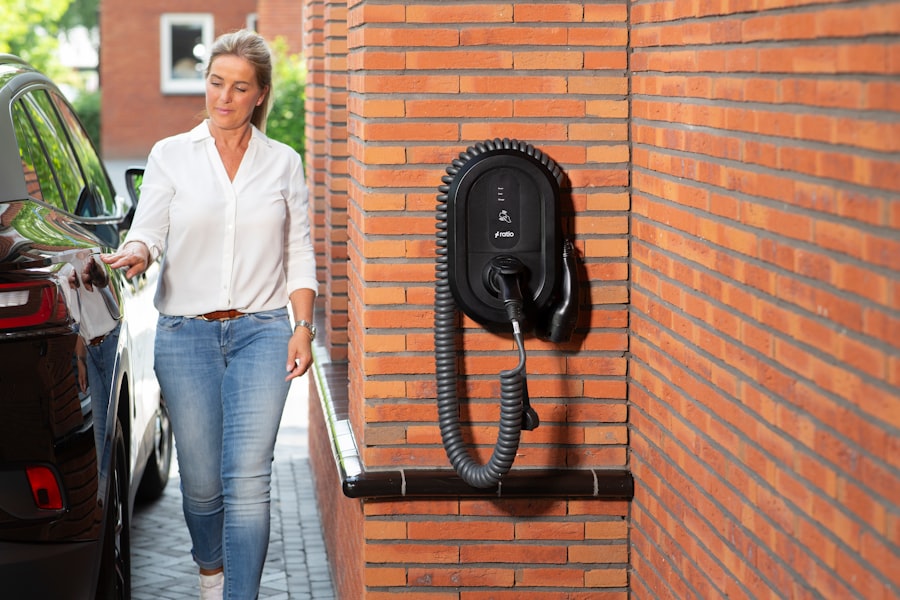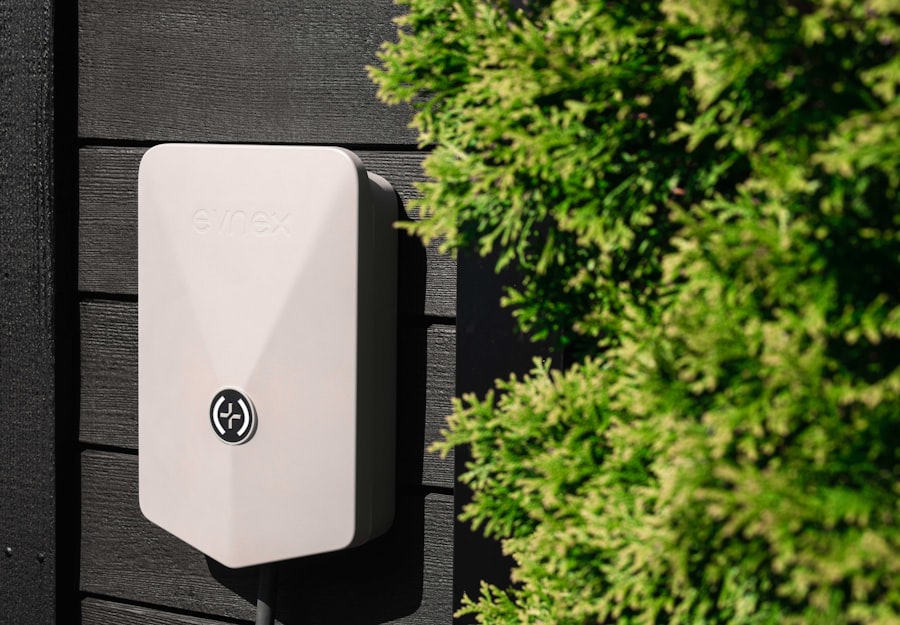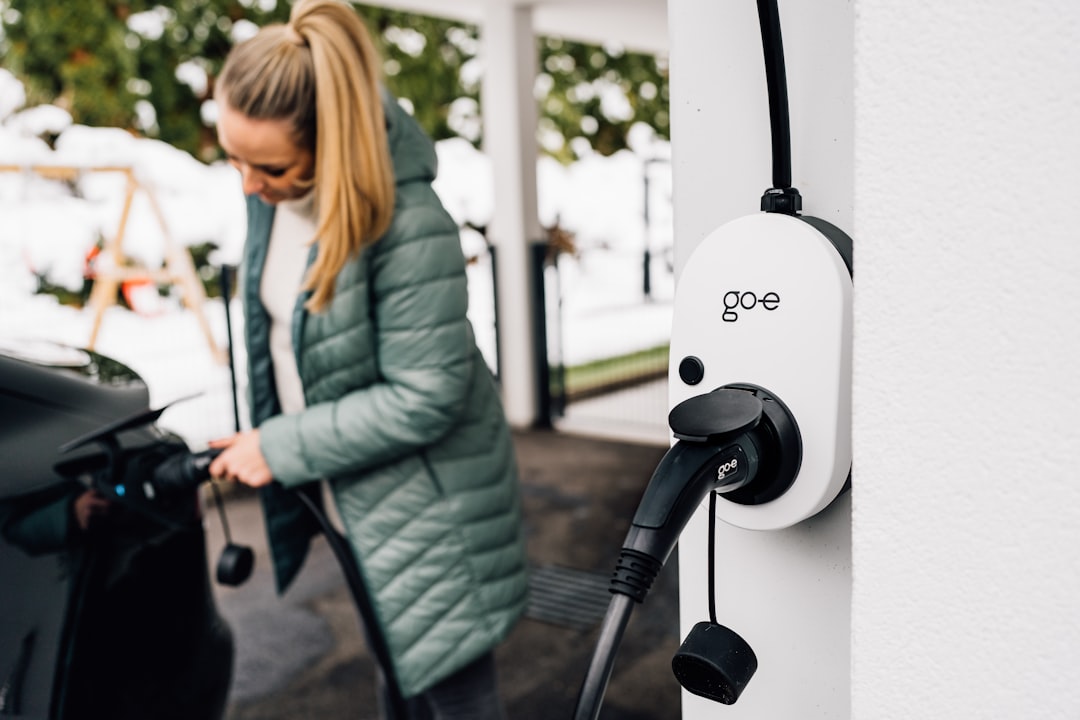In recent years, the automotive landscape has undergone a significant transformation, with electric vehicles (EVs) taking center stage. As you navigate through the streets, you may have noticed an increasing number of EVs gliding silently past you, a testament to their growing popularity. This shift is not merely a trend; it represents a fundamental change in how we think about transportation.
The rise of electric vehicles is driven by a combination of technological advancements, environmental concerns, and changing consumer preferences. As more people become aware of the benefits of EVs, the demand for these vehicles continues to surge.
Many countries are setting ambitious targets for phasing out internal combustion engines, encouraging manufacturers to invest heavily in electric technology. As you consider your own transportation choices, the allure of EVs becomes increasingly compelling. With advancements in battery technology and charging infrastructure, the barriers that once deterred potential buyers are gradually being dismantled.
The future of transportation is electric, and you are witnessing this evolution firsthand.
Key Takeaways
- Electric vehicles are becoming increasingly popular due to their environmental benefits and cost savings.
- Home charging provides convenience for electric vehicle owners, allowing them to charge their vehicles overnight or during off-peak hours.
- Home charging can lead to significant cost savings compared to public charging stations, making it a more affordable option for electric vehicle owners.
- Home charging reduces the environmental impact of electric vehicles by decreasing the reliance on fossil fuels and lowering greenhouse gas emissions.
- The integration of home charging with smart grids is crucial for the energy transition, as it allows for more efficient and sustainable use of electricity.
The Convenience of Home Charging
One of the most appealing aspects of owning an electric vehicle is the convenience of home charging. Imagine coming home after a long day, parking your car in the driveway or garage, and simply plugging it in to recharge overnight. This seamless process eliminates the need for frequent trips to gas stations, allowing you to start each day with a fully charged vehicle.
As you embrace this new lifestyle, you’ll find that home charging not only saves time but also adds a layer of comfort to your daily routine. Home charging stations are becoming increasingly accessible and user-friendly, making it easier than ever for you to integrate this technology into your life. With various options available, from basic Level 1 chargers to faster Level 2 units, you can choose a solution that best fits your needs and budget.
The ability to charge your vehicle at home means you can take control of your energy consumption and schedule, ensuring that your car is always ready when you need it. This convenience is a game-changer for many EV owners, allowing you to focus on what truly matters while your vehicle takes care of itself.
Cost Savings of Home Charging

When considering the financial implications of owning an electric vehicle, home charging presents significant cost savings that can enhance your overall experience. Charging your EV at home is often much cheaper than refueling a traditional gasoline vehicle. As you analyze your monthly expenses, you’ll likely find that the cost per mile for electricity is substantially lower than that of gasoline.
This reduction in fuel costs can lead to substantial savings over time, making electric vehicles an economically viable option for many drivers. Moreover, many utility companies offer special rates for EV owners who charge during off-peak hours, further reducing your electricity costs. By taking advantage of these programs, you can optimize your charging habits and maximize your savings.
As you weigh the financial benefits of home charging against traditional fueling methods, it becomes clear that embracing electric vehicles can lead to long-term savings and greater financial freedom.
Environmental Benefits of Home Charging
| Environmental Benefits of Home Charging |
|---|
| Reduction in greenhouse gas emissions |
| Decrease in air pollution |
| Conservation of natural resources |
| Lower carbon footprint |
The environmental benefits of home charging are another compelling reason to consider electric vehicles as part of your lifestyle. By choosing to charge your EV at home, you are actively contributing to a reduction in greenhouse gas emissions and air pollution. Unlike traditional gasoline-powered vehicles that emit harmful pollutants into the atmosphere, electric vehicles produce zero tailpipe emissions.
This shift not only improves air quality in urban areas but also plays a crucial role in combating climate change. Furthermore, as renewable energy sources such as solar and wind power become more prevalent, the environmental impact of charging your vehicle at home can be significantly minimized. If you have the opportunity to install solar panels on your property, you can harness clean energy to power your EV, creating a sustainable cycle that benefits both you and the planet.
By making conscious choices about how you charge your vehicle, you can align your transportation habits with your values and contribute to a healthier environment for future generations.
The Role of Home Charging in the Energy Transition
Home charging is not just a convenience; it plays a vital role in the broader energy transition towards sustainable practices. As more individuals adopt electric vehicles and utilize home charging solutions, the demand for clean energy sources increases. This shift encourages utility companies and governments to invest in renewable energy infrastructure, paving the way for a more sustainable energy grid.
As you participate in this transition by charging your EV at home, you become part of a larger movement towards energy independence and sustainability. Moreover, home charging can help alleviate some of the strain on public charging infrastructure as more people choose to charge their vehicles at home rather than relying solely on public stations. This decentralized approach to energy consumption allows for a more resilient energy system that can adapt to changing demands.
By embracing home charging, you are not only enhancing your own transportation experience but also contributing to a collective effort to create a cleaner and more sustainable future.
The Advancements in Home Charging Technology

As technology continues to evolve, so too does the landscape of home charging solutions for electric vehicles. Innovations in charging technology have made it easier and faster for you to recharge your vehicle at home. For instance, advancements in Level 2 chargers have significantly reduced charging times, allowing you to replenish your battery more quickly than ever before.
These improvements mean that even if you’re short on time, you can still ensure that your vehicle is ready for your next journey. Additionally, smart charging technology is becoming increasingly popular among EV owners. With features such as scheduling and remote monitoring through smartphone apps, you can optimize your charging habits based on electricity rates and personal preferences.
This level of control not only enhances convenience but also allows you to make informed decisions about energy consumption. As these technologies continue to advance, you’ll find that home charging becomes an even more integral part of your daily life.
The Impact of Home Charging on Infrastructure
The rise of home charging solutions has significant implications for infrastructure development across communities. As more households adopt electric vehicles and install home charging stations, there is a growing need for local governments and utility companies to adapt their infrastructure accordingly. This shift may involve upgrading electrical grids to accommodate increased demand or implementing policies that support the installation of residential charging stations.
Moreover, as neighborhoods become more EV-friendly with increased home charging capabilities, property values may rise due to the desirability of sustainable living options. You may find that homes equipped with charging stations become more attractive to potential buyers, further driving demand for electric vehicles and related infrastructure improvements. This positive feedback loop creates an environment where sustainable practices are not only encouraged but also rewarded within communities.
The Future of Home Charging
Looking ahead, the future of home charging appears bright as technology continues to advance and consumer adoption grows. Innovations such as wireless charging systems are on the horizon, promising even greater convenience for EV owners like yourself. Imagine simply parking your vehicle over a designated area and having it charge automatically without the need for cables or plugs—this vision may soon become a reality.
Additionally, as battery technology improves and ranges increase, the need for frequent charging may diminish. This evolution could lead to a shift in how we think about home charging altogether. You might find yourself relying less on daily recharges and more on occasional top-ups as battery capacities expand.
The future holds exciting possibilities for home charging solutions that will enhance your experience as an electric vehicle owner while contributing to a more sustainable world.
The Accessibility of Home Charging
While home charging offers numerous benefits, accessibility remains a critical consideration for many potential EV owners. Not everyone has access to a garage or dedicated parking space where they can install a charging station. As you contemplate making the switch to an electric vehicle, it’s essential to consider how accessible home charging will be in your living situation.
To address these challenges, some communities are exploring innovative solutions such as shared charging stations or retrofitting existing infrastructure to accommodate EVs in multi-unit dwellings. These initiatives aim to ensure that everyone has access to convenient charging options regardless of their living arrangements. As awareness grows around the importance of equitable access to home charging solutions, you’ll likely see more efforts aimed at making electric vehicle ownership feasible for all individuals.
The Importance of Home Charging for Urban Dwellers
For urban dwellers, home charging presents unique advantages that can significantly enhance their experience with electric vehicles. In densely populated areas where gas stations may be scarce or inconveniently located, having the ability to charge at home becomes invaluable. You can avoid the hassle of searching for public charging stations or waiting in line at gas pumps—simply plug in when you arrive home and enjoy peace of mind knowing that your vehicle is ready for use.
Moreover, urban environments often face challenges related to air quality and traffic congestion. By adopting electric vehicles and utilizing home charging solutions, residents can contribute to cleaner air and reduced noise pollution in their communities. As cities continue to evolve towards sustainability goals, embracing electric vehicles becomes an essential part of creating healthier urban spaces for everyone.
The Integration of Home Charging with Smart Grids
The integration of home charging solutions with smart grids represents a significant advancement in how we manage energy consumption and distribution. Smart grids utilize advanced technology to monitor and optimize electricity usage across networks, allowing for more efficient energy management. As an EV owner who charges at home, you’ll benefit from this integration through features such as demand response programs that incentivize off-peak charging.
By participating in these programs, you can help balance energy loads during peak times while saving money on your electricity bills. Additionally, smart grids enable better communication between consumers and utility providers, fostering a more collaborative approach to energy management. As this technology continues to develop, you’ll find that home charging becomes increasingly integrated into the broader energy ecosystem—creating opportunities for savings while supporting sustainability efforts.
In conclusion, the rise of electric vehicles has ushered in a new era of transportation characterized by convenience, cost savings, environmental benefits, and technological advancements. Home charging plays a pivotal role in this transformation by providing accessible solutions that enhance the overall experience for EV owners like yourself. As we look towards the future, it is clear that embracing home charging will not only benefit individuals but also contribute significantly to our collective journey towards a sustainable energy future.
Home charging for electric vehicles has emerged as a quiet success, providing convenience and cost savings for EV owners. As more individuals transition to electric vehicles, the ability to charge at home has become a significant factor in their decision-making process. For a deeper understanding of this trend and its implications, you can read a related article on the topic [here](https://www.howwealthgrows.com/sample-page/). This article explores the benefits of home charging and how it contributes to the overall growth of electric vehicle adoption.
WATCH THIS! The $7.5 BILLION Lie: Why EV Chargers Are Always Broken
FAQs
What is home charging for electric vehicles?
Home charging for electric vehicles refers to the process of charging an electric vehicle’s battery at home using a dedicated charging station. This allows EV owners to conveniently and efficiently charge their vehicles overnight or whenever they are not in use.
Why is home charging considered a quiet success?
Home charging is considered a quiet success because it has significantly contributed to the widespread adoption of electric vehicles. The convenience and accessibility of home charging have alleviated range anxiety and made EV ownership more practical for many consumers.
How does home charging benefit electric vehicle owners?
Home charging offers several benefits to electric vehicle owners, including the convenience of charging at home, potential cost savings compared to public charging stations, and the ability to start each day with a fully charged battery.
What are the different types of home charging stations available?
There are two main types of home charging stations: Level 1 chargers, which use a standard 120-volt household outlet, and Level 2 chargers, which require a 240-volt outlet and offer faster charging speeds. Some EV owners also opt for smart charging stations that can be controlled and monitored remotely.
Are there any incentives or rebates available for installing a home charging station?
Many states and local governments offer incentives or rebates for the installation of home charging stations. Additionally, some utility companies offer special rates or incentives for EV owners who charge their vehicles at home during off-peak hours.
